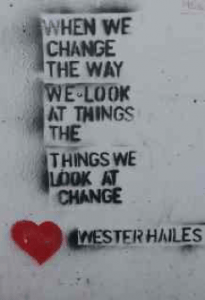 This month in the Wester Hailes Community Herbal Clinic, we had a kind invitation from one of our resident GPs at the next door GP surgery, Dr Sineaid Bradshaw. She agreed to have us come and spend a morning observing her consultations. We are in a very privileged position in the Wester Hailes Healthy Living Centre to have such a commitment to partnership working from the agencies within the integrated building, so were excited to build our collaborations by spending some time with the GPs.
This month in the Wester Hailes Community Herbal Clinic, we had a kind invitation from one of our resident GPs at the next door GP surgery, Dr Sineaid Bradshaw. She agreed to have us come and spend a morning observing her consultations. We are in a very privileged position in the Wester Hailes Healthy Living Centre to have such a commitment to partnership working from the agencies within the integrated building, so were excited to build our collaborations by spending some time with the GPs.
The clinic I attended was the Substance Misuse Clinic, a special service which runs three times a week from the practice where patients who are stable drug users are given a longer appointment of twenty minutes for a fuller check in on their medical issues and wellbeing. It runs in concert with the local Substance Misuse Directorate (SMD), key workers from the voluntary sector partners, as well as a Community Activity Mentor. Dr Bradshaw explained to me that the approach currently used is a model of Recovery, with Harm Reduction. The aim is not simply to “be the doctor who writes the methadone scripts” but to promote recovery by creating relationships with each patient, discussing and understanding their personal & social situations. The doctors prescribe medications as necessary, encouraging dose reductions as patients themselves are ready to do so, and to signpost to activities & community support for facilitating recovery.
I spent an enjoyable morning with Dr Bradshaw, and the approach I witnessed from her was not a punitive one as is so often the case with drug users, but very caring & patient-centred. She was very attentive to each individuals’ needs and family situations, and encouraged people who were in a safe enough place to reduce their medications to set goals for themselves, while being sensitive to issues others were facing.
The whole while there was the complex question of deciding what dose of addictive medications to prescribe each person – too little, and people might end up choosing to supplement their script with extra Diazepam, Methadone or Heroin off the street, but too high for that persons’ needs and the same drugs could be sold on the street. The formidable challenge of keeping patients safe while maintaining a trustful relationship with each person requires careful negotiation, and was one which Dr Bradshaw handled exceptionally well.
When possible, she also discussed the long term health impacts of taking certain prescribed medications to her patients – especially when liver and/or kidney function is deficient. In these cases she recommended that folks pay a visit to the herbal clinic for an alternative approach, and a way of reducing some load on the body by using gentler herbal medicines.
It was a very thought-provoking morning, and encouraged me to think more about the ways in which herbalists and medical doctors can collaborate. Certainly taking a more joined up approach to poly-pharmacy (where patients are on more than ten prescribed medications at once time), could be of benefit to patients suffering from side effects or long term ill effects of certain medicines.
I look forward to hopefully spending more time in the Wester Hailes Medical Practice.
Here is a wee bit more information for interested folks about the collaborating working model in Wester Hailes: https://livingwellwesterhailes.wordpress.com/2015/12/23/what-is-the-living-well-wester-hailes-project/
https://healthier.scot/2015/09/03/good-conversations-matter/
